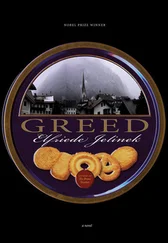Can't you take photos of me with my clothes on like other people do? No, any amateur can take pictures of people with their clothes on. Anyway, it's a twofold pleasure for me, once when I take the pictures and then secondly when I look at them and evaluate them critically. Between the two stages come the developing and enlarging. That is enjoyable too. Art is always a struggle for the desired result. Your willpower will show in the picture too, Gretl, when you've put your objections behind you. You can see an artist's talent in his eyes, partly, burning deep down within.
Right, let's go. A housewife who is being spied on by a stranger while she's washing in the kitchen tries to cover up but all she has for the purpose is (say) an inadequate ovencloth. Which doesn't even cover her vital parts, her privates, thank God. And the privates are what I want. The housewife, being clumsy into the bargain, covers the wrong part too, instead of the right part. Come on, Gretl, come on.
But now there's a shadow over the privates, you stupid cow. The cunt, I mean. But I'm doing it just the way I did it last time! Well, that's wrong, you have to do it different every time so that the effect is striking and artistic. You have to leave that to me, who's the photography expert anyway, you or me? You, Otto. See?
Mother, who has seen better days (days when SS officers' wives would meet), better days than these days as an artist's wife, tugs and adjusts but if anything she makes matters worse rather than improving things.
You have to look afraid. It's always a terrific feeling to smash down resistance, I smashed resistance quite often myself in the War and liquidated numerous persons all on my own. Nowadays I have this wretched leg to contend with, but back then the women couldn't get enough of me, it was the magical attraction of the uniform that did it. That smart uniform. I remember how we were often up to the ankles of our riding-boots in blood in Polish villages. Look, thrust your pelvis further forward, you slut, where's your pussy got to again? Ah, there it is.
Mother hums one of those melancholy songs by Koschat, which always have a birch seat in them. She is thinking of a field of wheat and a walk in the country, things that you're reluctant to expect a one-legged man to take on, it's hard to ask it of him, he'd only spoil the mood from the very start anyway. Father is thinking of a different field, the field of honour where he didn't fall. Now he keeps a careful watch on the field of family honour, by way of compensation. So his wife, the sow, doesn't have it off with men who are not disabled. You can't keep an eye on her all the time, and what does she do at the grocer's when she goes there?
Frau Witkowski says it's often necessary to have a break. Herr Witkowski says he'll break something of hers in a minute, and throws something hard that hits her shoulder and makes her start. She'll have a bruise there. Ready yet, you whore? Look, it's not too much to ask, now is it? Else I'll knock you down with my crutches. At one time I would have thrown myself on you but now it's out of the question, a man with one leg can't throw himself anywhere (or he'll have problems getting up again). It's like a fish. A fish hasn't got any legs at all but it can swim and dive gracefully. So I'm a perfect photographer. Now get your legs apart!
My hobby photographer's eye tells me that you've not washed your hair. Again. I ordered you to wash your hair. It's supposed to look silky and not like some straggly thornbush. You do nothing but get in the way of my personal fulfilment. I get my fulfilment from nude photography. Whenever you block off my forays into the realm of photography I could bash your skull in.
But I don't block off your forays into the realm of photography, not at all, Otti.
ANNA DESPISES TWO classes of people: first, those who own their own homes and have cars and families, and second, everybody else. Constantly she is on the verge of exploding. With rage. A pool of pure red. The pool is filled with speechlessness that talks away at her nonstop. In her there is nothing whatsoever of a lass with a perm or a bobbing pony-tail listening to a hit in a record store and restlessly tapping her foot because the rhythm gets to her. Everybody but her is on the ice, the smooth, endless ice, and Anna kicks and shoves them in turn as she goes along. Right out to the very edge, which you cannot see but which it's to be hoped is there so that they can all be swept into the deathly-cold water. What she talks about with her brother is of a philosophical or literary nature, but what speaks from within her alone is the language of the sounds produced by the piano.
On a school trip once, the girls in her class took a photo where they were all giving a double-page pic of Peter Kraus in Bravo magazine a kiss. Eight laughing faces, all going mmmm-mmmm with their lips pursed to kiss and smiling into the camera. Anna was the only one who wouldn't purse her lips, and they jeered at her. The real derision followed soon after, when one of the girls said to Anni: Hey, Anni, get in here quick, they've got Bach on the Wurlitzer, sounds like your kind of thing. And dimwit Anna, stupid with sun, blinded by her music studies and rendered a social defective by a crazy mother, dashed in as fast as she could go, wanting her own music that nobody but her would understand and which she could explain. But what was playing on the jukebox? A hit by Elvis, Tuttifrutti, which you have to reject for educational reasons, let alone anything else. The girls rolled about on the cafe floor, their stupid schoolmate Anna imagined you'd get Bach on a Wurlitzer and not what youngsters love.
That is the kind of twisted schoolkid Anna is. Anna, who spends her spare time playing the piano.
In Anna's case it tends to be a sweeping-up job, like a street-cleaning machine. In Rainer's it is more like a flight of steps consisting of living human beings, with the young author standing on the topmost step, picked out by a light, reading out one of his own poems, a poem that embraces the whole of mankind and is mythic in character.
Apart from literature (which anyone who can speak is a master of, none more nor less than another, but which certain people have monopolised, people who can't afford a superior method to elevate them out of their surroundings), Rainer has unfortunately not managed to conquer anything else yet. But literature is well able to meet Rainer's demands.
Whenever (contrary to all expectation) the twins are invited to some wild party, they promptly say no, we don't associate with people like that, that kind of fun is stupid and pointless. But they only say it because they can't dance and can't stand not being better at something than other people. Renunciation is rarely easy for Youth, but Age finds it less of a problem since it has already been practising renunciation the whole time.
Rainer says you can take possession of a person. First of all you have to know more than he does, and then he will recognise your expert status. Hans, for instance, the young worker met at the jazz club. Rainer will explain everything to him, till he is nothing but a tool without a will of his own; this is more difficult than fashioning a literary text, since people are capable of putting up surprising resistance. Which is tiring. But it stretches you.
Art is flexible and tremendously forbearing. People are occasionally refractory, but they are receptive to explanations. Of course they think they know better anyway, but Rainer really does know better.
The kids who go to school with him are a grey flock of lambs, ignorant and immature. They say what they did with girls at the weekend, in the basements (converted for partying) of their parental homes, in their own rooms in comfortable apartments at Hietzing, in the woods while looking for mushrooms, or in a changing cubicle at the swimming baths. The girls say what they allowed to be done to them or how they refused to do it and how the boys begged. But they were adamant because they Want To Stay A Virgin. Everything that's said is a cue for something else. Rainer, have you never done it with a girl? At least when they're talking about intimate subjects like this they don't call him 'Professor' the way they usually do. Rainer promptly explains that lust is a species of ecstasy. (????) You see, in this state of ecstasy, consciousness is merely the consciousness of the body, and therefore a reflexive consciousness of physicality. As in the case of physical pain, in lust there is a kind of reflex which ensures that one is very intensely aware of one's lust. (Huh? I don't get it.)
Читать дальше












